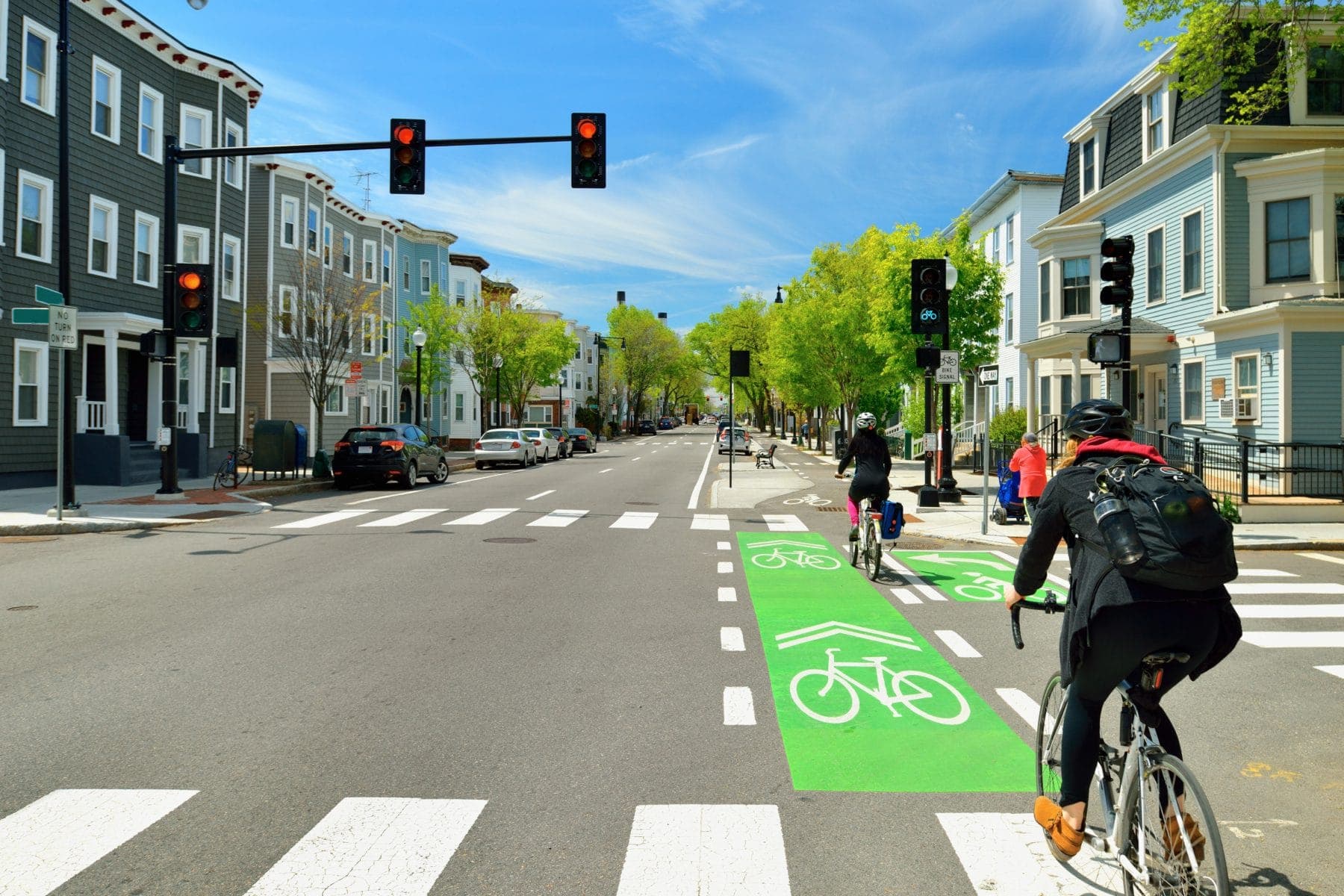
COMPLETE STREETS
Adopting a strong Complete Streets policy
A Complete Streets policy specifies how a community will plan, design, and maintain streets so they are safe for all users of all ages and abilities. A strong policy begins transforming a community’s practices, processes, and plans.
Planning, Designing, and Building Streets Effectively
Complete Streets is an approach to planning, designing and building streets that enables safe access for all users, including pedestrians, bicyclists, motorists and transit riders of all ages and abilities. This approach also emphasizes the needs of those who have experienced systemic underinvestment, or those whose needs have not been met through a traditional transportation approach.
What constitutes a great Complete Streets Policy?
The best policies have evolved to focus far more on implementation and equity. I.e, are policies actually being fully implemented in order to change what gets built and where? And do they prioritize improving equity in tangible ways? As noted below, the strongest policies incorporate all ten of the elements laid out in our policy framework.

Adopt a Complete Streets Policy
Identify a broad set of partners
Take some time to identify the right partners. Who cares about this work (local transportation advocates, neighborhood-based groups, public health agencies)? Who makes decisions about this (transportation government agencies, elected leaders)? Who shares similar goals but may not seem like obvious partners (disability advocates, healthcare partners, real estate associations, community development groups, public safety agencies)
Also, consider how your partners relate to the communities you’re trying to serve. Are they members of the community? Do they have shared or similar experiences? Consistently putting the community you are trying to serve at the center of your work is key to developing an equitable policy.

Build a coalition
Bring together your partners and discuss the goals for your policy. Why is your community interested in adopting a Complete Streets policy? Take time to outline your goals; this will set your foundation, ensure everyone is on the same page, and make it easier to start drafting a policy, which always should start with a clear vision and purpose.


Draft your policy using the 10 elements
When your coalition is ready to begin drafting the policy, our 10 Elements of a Complete Streets Policy is the best starting place. Based on nearly two decades of real-world experience and best practices, it provides a framework for designing the strongest possible policy, specific ideas on what you might want to prioritize, and suggestions on how to make your policy binding.
Determine the best policy format
Complete Streets policies can take a variety of formats: from ordinances adopted by city and county councils to executive orders from elected officials, such as mayors or governors. Whatever format you take, make sure that your policy is binding and requires government agencies to change their approach.


Identify the steps for passing a policy in your community
The format of your policy will determine the steps needed to formally adopt your policy. Your government partner(s) and elected officials will be able to help shepherd this process.

Adopt your policy and celebrate the win!
While adopting a policy is just the first step in Complete Streets implementation, it’s important to gather your coalition and community to celebrate the work it took to come this far. This is especially important if your coalition is planning to continue with a new goal or project
Putting a Complete Streets policy into practice
A strong policy is the first step in a much longer process to shape practices for street design. Changing those practices is a key step in making a Complete Streets approach the default approach. Those practices determine the projects that get built and how, which are the building blocks of creating a complete network to serve everyone and connect more people to destinations safely and efficiently.

- Policies
- Practices
- Projects
- Network
1. Change procedures and processes
Agencies must review and update all of their existing procedures, plans, regulations and processes to accommodate all users on every project.
2.Review and revise design guidance
At many transportation agencies, the (street) design manual is the go-to reference for all projects Agencies need to develop new design policies and guides or revise existing ones to

© 2025 Smart Growth America. All rights reserved
Site By3Lane Marketing






